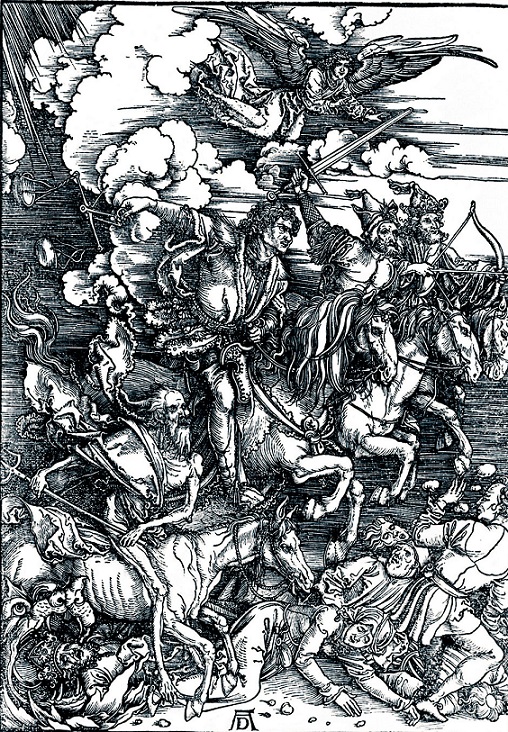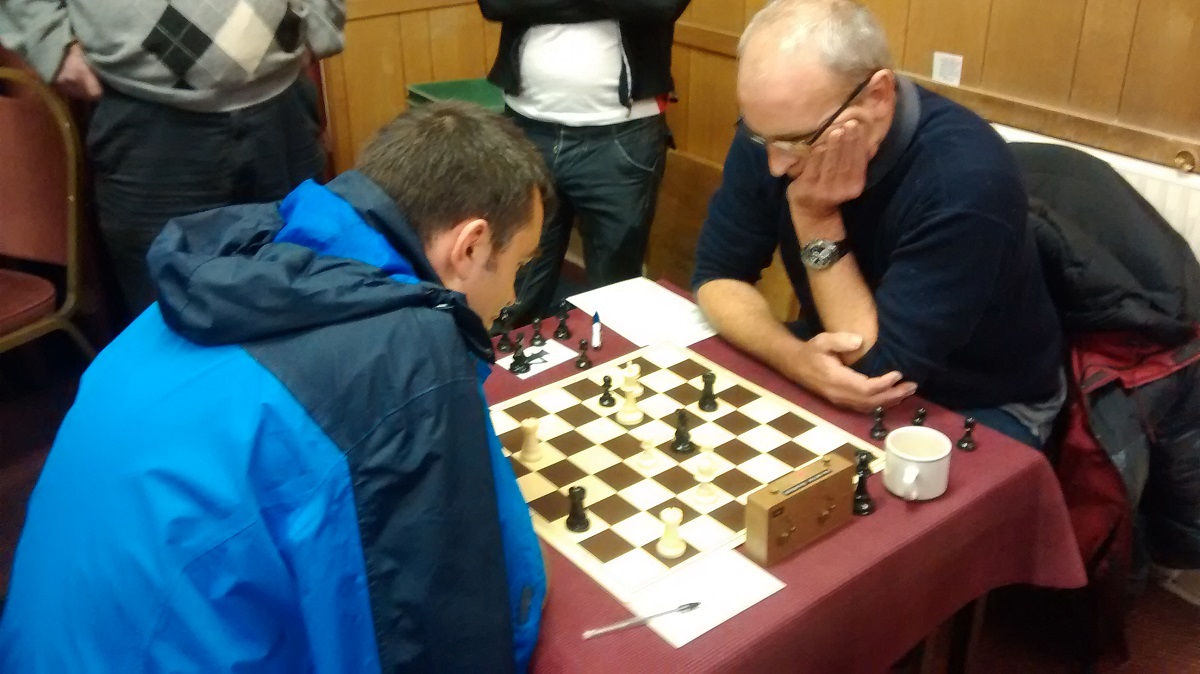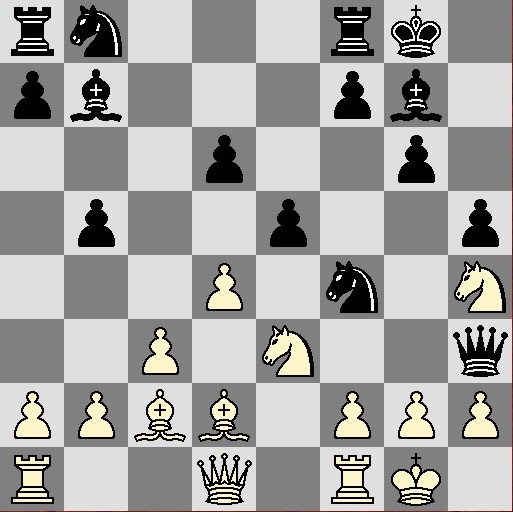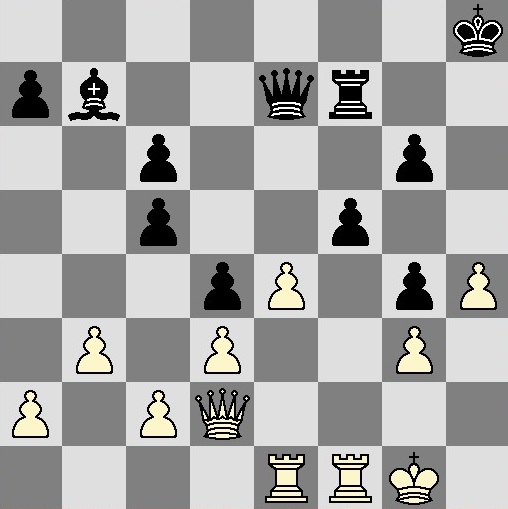|
Match Captain's Report
Today’s class is a lesson in Art History
Once upon a time in the West…
It was at Jeremy Menadue’s suggestion that I have invoked Sergio Leone’s exquisite spaghetti western “Once Upon a Time in the West” (although being a true Cornishman Jeremy suggested retitling it “in the East”) to summarise our bloody encounter with the mighty Devon chess team at Plymouth Bridge Club on 7 February 2015, and featuring Grant Healey as the harmonica-playing gunman.
Cornwall’s victory was said by local chess historians to be the first for twenty five years in this annual contest and must count as a boost to our confidence as we eye the prospect of progressing beyond WECU to the national stages of inter-county competition. Certainly the match result must count as one of the best performances by Cornwall chess for several decades and hopefully confirms our arrival on the scene as contenders rather than traditional whipping boys. The final match result (see above) was a win for Cornwall by 8.5 to Devon’s 7.5 over the 16 boards of the First Division match, and a win for Devon by 7 to 5 in the 12 board Second Division match (capped at 160 grading points or under). Since had we won on the board we defaulted (for which we were duly but embarrassingly fined) the Second Division match would have been drawn, it seemed a little inexplicable that the Chess Devon website described this as a “comfortable win” for Devon.
Several still young-looking Cornish stalwarts saw the result as “historic”. Indeed many present recalled the victory of 1985/6 with Michael Adams winning on Board 1. Jeremy Menadue, David Saqui, Jeff Nicholas and Anton Barkhuysen, there on Saturday, all graced the earlier occasion, as did Devon’s Brian Hewson.
Stats
Giant killing is partially a matter of languid self-confidence (see Donatello’s bronze David in Florence’s Bargello), but also a willingness to “have a go”, and indeed the omens had been declared favourable following the encouraging example of the Pirates win over Bristol. Since we were out-graded on virtually every board, I had hoped to be able to give a statistically significant figure for the chess mountain we climbed, using the null hypothesis and chi squared to calculate the likelihood that the result could be attributed to chance alone. It was pointed out, however, by no less an expert than IM Jack Rudd, that the ECF grading data base is not designed in a way that would support such a calculation. Andrew Slade had asked Jack if he could help calculate the probability of Cornwall defeating Devon and this was his reply: “The ECF grading system does not have enough information in it to work that out properly, for example while it will tell you that Theo’s expected [average] score against his opponent was 0.32 that does not give probabilities for the three [possible] results, so all it will tell you is how many points Cornwall were expected to score over the match as a whole”. One can see the logic; draws are not just the product of grading comparisons but are style-specific (copyright Mick Hill).
The results nevertheless show that our erstwhile vulnerable “tail” is getting battle hardened. The top eight boards, counted alone, would have resulted in a drawn match, but the lower orders not only secured a sectional win by a single point but did so with five gritty draws backing the two outstanding victories by John Wilman and Gary Trudeau.
The Four Horsemen of the Devon Apocalypse
In times like this one is tempted to have recourse to eschatological imagery, so I make no apology for this section of my report borrowing from the famous woodcut by Albrecht Durer

We can fancifully identify the four horsemen of the Devon apocalypse as Theo Slade, Mark Hassall, Grant Healey and John Wilman. Theo and Grant were to some extent metaphorical horsemen, “going out conquering and to conquer” as the Book of the Revelation of St John puts it, but in the case both of Mark and John equine chess pieces played a significant role in their victories.
On Board 2, Theo Slade laid to waste a formidable opponent with a superior grading in a game of great maturity. The opening was a Prinz variation of the Sicilian Defence (Venice attack) with Theo sacrificing a pawn on move 8 and swapping bishops to force Black’s queen into a premature sortie as well as creating long term pressure down the open c file. He managed his clock and played a difficult end game with his usual accuracy and aplomb.
Mark Hassall, playing Black, opted for the Sicilian Kan and after some interesting skirmishes managed on move 22 to take White’s bishop on d3 with his knight, establishing a formidable outpost and threatening the e pawn. This was only possible, according to Mark, because his opponent thought he could win an exchange by moving his knight to h7. He had not seen that his knight “would have difficulty in getting out: a strange mistake for a good player”. Two pawns up, the game was by then moving in Mark’s favour, and Cornwall were heading towards another success on the long winding road to victory.
Grant Healey’s game went right to the wire and turned out to be the decider. To put the point mildly, it was not without incident and at least one spectator had to leave the vicinity for fear of chess induced apoplexy. This excitement seemed unlikely after cautious initial manoeuvring by both sides that resembled a transposed version of the Torre Attack in a Queen Pawn opening, with Grant, playing White, offering a truce on move 15, perhaps as a ploy, since rejecting a draw can have subtle psychological impact on further play.
Grant gradually built up a significant advantage, although White missed at least one clear chance of creating equalising counter-play. The heart-stopping drama came right at the end, as the game reached a tactically non-trivial endgame with Grant not only in what ought to be a technically winning position but also having something like ten minutes on his clock to his opponent’s one.

Being Grant, a rider “permitted to take peace from the earth”, our hero reasoned that he should deprive Black of any opportunity to think in his (Grant’s) time, and started moving virtually instantaneously himself. His opponent was clearly disconcerted but did not panic, and still took (slightly!) longer for his more difficult moves. Grant, of course, is formidable at this lightning stuff and won a rook for a knight by a neat tactic on move 58. According to the Chess Devon website this is where the game ended (Black was no longer keeping score) but as the Cornwall spectators remember all too clearly, the game lurched on with Grant unaccountably blundering a rook. His response was similar to that of F1 driver Kimi Raikkonen when a car blew its engine immediately in front of him covering the track in impenetrable smoke. Raikkonen did not even lift, but drove flat out in zero visibility. Grant allowed himself only a brief sardonic sneer at his own folly and started immediately to push his pawns. When it became clear that he could force a pawn to the queening square his opponent resigned. What a way to win a match! It’s all tuneful rock and roll to our harmonica playing gunman, but the name of the pale horse is still Death.
The issue here is an interesting one, worthy of debate. What style of play optimises a time advantage in a situation like the one described?
The most interesting piece of apocalyptic equestrianism has already appeared on the Chess Cornwall website. Playing black against a King’s Indian, John Wilman not only mated his opponent in 22 moves but twice offered a queen sacrifice, (moves 17 and 21) although in both cases taking the Queen would have led to immediate mate by the black knight supported by a Bishop on the long diagonal. The latent fierce energies of the position achieved a delicate and profound balance, like a warhorse at dressage.

Meyrick Shaw v John Wilman. Position after 17...Qh3!!.
“And behold I saw a black horse and its rider had a balance in his hand”
The actual checkmate was overlooked rather than forced, but the game was already won and it would have been difficult not to be overawed by the temerity and ingenuity of John’s play (“The force was with me” asserted John modestly, “these combinations play themselves”.)
Comments on other individual games.
Again I am grateful to those individual players who submitted comments on their games and those of others, often more perceptive than my own would have been. With some of our strongest players losing, it was good to see that Cornwall chess is beginning to exhibit strength in depth, with your captain fighting for his place in the First Division team and yielding this time out to the up-and-coming Richard Stephens, who came very close to holding his game following an early advantage, as testified by John Wilman who was able to watch other games after his early bath. As indicated above, the last eight boards of the first team more than held station, and the second team also put in a commendable performance against the grading gradient we faced.
Richard Smith, again according to John, “bluffed his way to a draw from a lost position”, while both James Hooker and Gary Trudeau earned convincing wins, the latter demonstrating the superiority of Bishops over Knights in a Queen-less middle game, following a Queen’s Gambit declined, which he converted into a winning endgame.
Also worth mentioning is Lloyd Retallick’s fine draw in a Caro-Kann against Brian Hewson in a difficult rook and pawn endgame which was reduced to a single pawn each on opposite wings before a rook swap settled the draw with both sides queening without securing an advantage.
Jeff Nicholas modestly summarised his game as “unexciting”, but I regard it as a supremely sensible response to the state of the match. It was a Queen’s Pawn opening which turned into a Slav Defence, with Jeff concentrating on accurate defence as White seemed to have more of the initiative. With the match by then on a knife edge, Jeff exchanged queens in order to go into a bishop of opposite colours endgame, which secured the draw. It proved a good decision, with Jeff gleaning additional satisfaction from his opponent’s comment that he played the ending like Petrosian. Not Tal, of course, but still something to settle for.
The Cornwall Second Team
Our second team is still in a developmental state and was certainly not outclassed by a strong Devon contingent. We have self-consciously been encouraging youngsters and blooding new players to extend the base of the triangle for county selection and this match saw debut games by David Hutchinson, Jan Rodrigo, Richard Pascoe, and Andrew Slade, who was drafted at the last minute following a withdrawal. David, returning to competitive chess after a long break, was unable to recapture his old elan and unwisely surrendered a piece for a purely optical threat of his own. Jan, under strict orders from his captain to slow down, played soundly before yielding to a tactic. Richard just failed to get the better of a series of tactical skirmishes which left him with a losing endgame. On bottom board Andrew, seriously out-graded, declined a Queen’s Gambit and relentlessly pursued a policy of swapping pieces to retain equality. Eventually his opponent, faced with the choice of swapping Queen’s into a drawish endgame or having to repeat moves to defend a knight, settled for a draw by agreement. A fine result for Andrew who has loyally supported the team as Theo’s driver. “What a day!” wrote Andrew, “I was proud to be there to see history being made”.
It seemed to me particularly encouraging, given the competitive spirit abroad in Cornwall chess, that all three wins were achieved with the black pieces. Neil Robinson faced the uncommon (dubious?) Bird’s Opening, which at least has a surprise value. He emerged with more than equality and some room for taking the initiative. Aided by a double question mark move by his opponent on move 28 (Rc1), Neil progressed towards a comfortable endgame in which his menacing extra pawn, lusting to expand, was heading inexorably for the queening square, With Queens still on the board his opponent tried a series of checks hoping for a draw by repetition, but his flag fell mid attempt. Ian Renshaw played a steady game accumulating a number of advantages until reaching an endgame with two knights and a passed pawn against a knight and a pawn, which he had no difficulty converting into a solid win. Barry Childs played energetically for his win as black against a player graded 38 points higher, but the game was a bit on the wild side with both players having chances and could have gone either way right up to the end.
David R Jenkins drew on Board 1 for the Second Team against a player graded 160. The game began as if heading for a closed Sicilian but quickly morphed into a potential Grand Prix Attack as David got in his customary early f4. Before assaying the less tactical 5…Bb5 rather than Bc4. David probably made a weak choice on move 28, where his g3? had the laudable intention of cutting out counter-play and preserving the initiative, but as Jeremy Menadue pointed out, 28 Qh6+ Rh7 29 exf5 would have been a nice trick. The draw was agreed on move 39 although if anything David had a slight remaining advantage.

David R Jenkins v Keith Atkins. Position after 28.g3?
I was impressed by the way our team handled a number of difficult endgames. Anton Barkhuysen drew a rook and pawn endgame a pawn down by dint of a superior pawn structure. A similar endgame saw David Lucas hold rook and pawn endgame also a pawn down (K+R+4 pawns v. K+R+3 pawns), but this time facing a protected passed pawn, by very accurate rook play under mutual time pressure.
A tale of two flags
There were in the match two unusual happenings concerning flags. The first was an unusual incident involving the clock. Jeremy takes up the story: “Something strange occurred on Board 6 Saqui v Fraser. Black lost on time on move 40, but then White made a 41st move and stopped the clocks, without restarting Black’s clock. Then they put the clocks back and Black won on time in a lost position”. A greater diligence in clock-watching duties on David Saqui’s part would have spared us the excitement of Healey v Sivrev.
The other flag was a St. Piran’s Cornish flag that was energetically waved by Richard Smith as the match neared its dramatic conclusion. Richard’s daughter Phoebe had brought it along to the match following a family visit to Plymouth and Richard has subsequently apologised for his “vitriolic waving” that Devonians still playing might have found disconcerting. All due, of course, to the excitement of the day, although Devon were too generous to complain.
Ke-nedhel unnweyth arta!
David Jenkins
|



